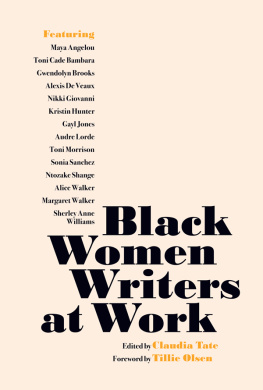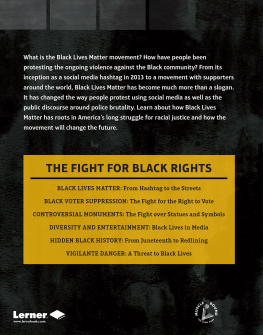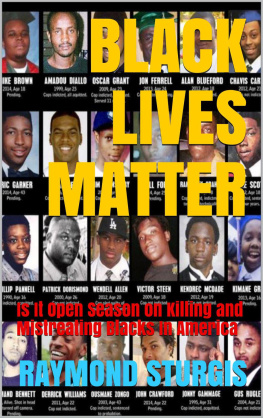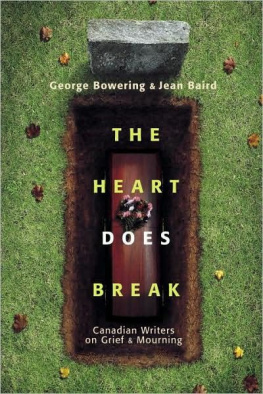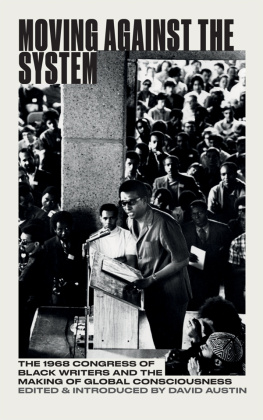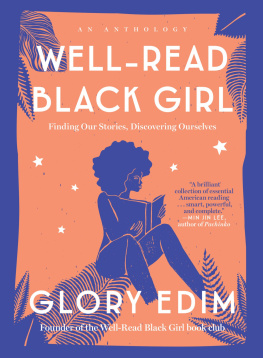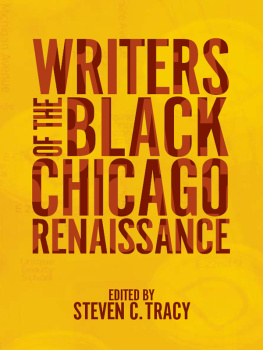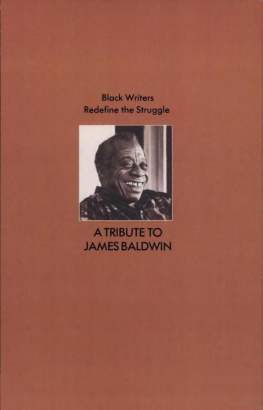Black
Writers
Matter
Black Writers Matter
edited by
Whitney
French

2021 University of Regina Press
All rights reserved. No part of this work covered by the copyrights hereon may be reproduced or used in any form or by any means graphic, electronic, or mechanical without the prior written permission of the publisher. Any request for photocopying, recording, taping or placement in information storage and retrieval systems of any sort shall be directed in writing to Access Copyright.
Printed and bound in Canada at Imprimerie Gauvin. The text of this book is printed on % post-consumer recycled paper with earth-friendly vegetable-based inks.
Cover design: Duncan Campbell, University of Regina Press
Text design: John van der Woude, jvdw Designs
Copy editor: Marionne Cronin
Proofreader: Kristine Douaud
Library and Archives Canada Cataloguing in Publication
Title: Black writers matter / edited by Whitney French.
Names: French, Whitney, 1987- editor.
Description: Revised edition.
Identifiers: Canadiana (print) 20210307706 | Canadiana (ebook) 2021030779X | isbn 9780889778740 (softcover) | isbn 9780889778771 (hardcover) | isbn 9780889778757 ( epub ) | isbn 9780889778764 ( pdf )
Subjects: csh : Canadian literature (English)Black Canadian authors. | csh : Canadian prose literature (English)Black Canadian authors. | csh : Canadian prose literature (English)21st century. | csh : Creative nonfiction, Canadian (English) | LCGFT: Literature.
Classification: lcc ps 8235. b 53 b 53 2021 | ddc c 810.8/0896071dc23

University of Regina Press, University of Regina
Regina, Saskatchewan, Canada, s4s 0a2
tel: (306) 585-4758 fax: (306) 585-4699
web: www.uofrpress.ca
We acknowledge the support of the Canada Council for the Arts for our publishing program. We acknowledge the financial support of the Government of Canada. / Nous reconnaissons lappui financier du gouvernement du Canada. This publication was made possible with support from Creative Saskatchewans Book Publishing Production Grant Program.

Contents
Foreword
by Dr. Afua Cooper
Introduction
by Whitney French
EVERYDAY PEOPLE
by Simone Makeba Dalton
by Cason Sharpe
by Rowan McCandless
by Phillip Dwight Morgan
by Fatuma Adar
by Whitney French
by Mshama Rose Eyob-Austin
by Christina Brobby
LETTERS TO COMMUNITY
by Mary Louise McCarthy
by Kyla Farmer
by
Dlice Mugabo
by Angela Wright
by Rachel Zellers
by Eternity Martis
by
Shammy Belmore, Simone Blais, Wenzdae Brewster, Kaya Joan
BLACK WRITERS MATTER
by
Makeda Silvera
by Sapphire Woods
by Christelle Saint-Julien
by H. Nigel Thomas
by Angela Walcott
by Chelene Knight
by Brandon Wint
Acknowledge ments
Give thanks to the Creator, first and foremost. Id also like to acknowledge my ancestors, known and unknown; I dedicate any writing I create to you. And to acknowledge my literary guidesthose walking this Earth and those whove transitioned to other realms. You left artifacts of writing to remind me of my humanity. To my parents, Angella and Lascelle French, for their unwavering support. Every story presented in the anthology, I picture you both reading it. You two are my compass. So much love to my sisters Carla and Nicolette, who are the most hard-core cheerleaders a girl could ask for. And to my best friend Anita Abbasi, who holds so much emotional space for me, always.
Id like to thank the University of Regina Press and Bruce Walsh for presenting this exciting project to me. Much love to Scott Fraser, my anthologys midwife, endless gratitude to my mentor David Chariandy whose generosity and encouragement not only helped me through early developmental stages but also allowed me to focus on the heart of what this work truly is. A thousand thanks to my P.C.O. crew for feedback on early versions of the introduction: Gwen Benaway, Alicia Elliot, Kim Senklip Harvey, Rebecca Salazar Leon, Carrianne Leung, Canisia Lubrin, Minelle Mahtani, Eli Tareq, Cason Sharpe, Natalie Wee, and Jenny Heijun Wills. Respect and thanks to M. NourbeSe Philip for sage advice around writing and anthology work. Thank you to Sommer Blackman for reminding me to fight for what I deserve. Respect, love, and inspiration to Dawn Dumont, Night Kinistino, Lindsay Knight, Erica Violet Lee, Nickita Longman, and Sylvia McAdam. Miigwetch to Jamaias DaCosta, who helped immensely with coordinating the My Ancestors Wildest Dream interviews. A heart-filled thanks to Dr. Afua Cooper for making time to write the foreword. To Lily Quan for recommending Black writers up north. Also big up Dalton Higgins for being a sounding board for so many frazzled ideas in my head. So much gratitude to Angela Wright for ranting alongside me during the most frustrating phases of this anthology. To my literary soul sister Sheniz Janmohamed, who forever surprises me with her love, verve, and passion for life.
Thank you to anyone on social media who spread the word about the call-out and thought that this project was worth sharing with their networks. This anthology wouldnt have happened without you. Honest. And of course, to all the contributors for trusting me with your writing. I hope I honoured your stories. You all inspire me so.
And give thanks to my brainfor not exploding.
FOREWORD
Performing Miracles: Black Writers Matter
Dr. Afua Cooper
Whitney French has performed a small miracle by bringing these stories in Black Writers Matter into a single anthology. This collection stands out from previous literary anthologies in that all the stories are written from the first-person perspective, and thus are extremely personal. And yet they are simultaneously political because Black writing by its very nature is political.
These voices range across age and space. This collection is a rich potpourri, a jambalaya of Black Canadian voices. These stories include memoirs, interviews, questionnaires, meditations, and other creative non-fiction pieces. The writers are high school and university students, artists, academics, cab drivers, poets, dreamers, lawyers, and community workers. They come from diverse parts of the Black Diaspora, but they and their families now converge and live in Canada, whether its for a few decades or a few centuries.
As I read each story, the James Baldwin quote that to be a Negroand to be relatively conscious is to be in a rage almost all the time resounded in my head. All the writers in the collection touch a place of rage in their writing as they narrate, chronicle, and relate their experiences as Black, gendered, and sexualized individuals living in different places in Canada. In fact, as shown by Angela Wrights story The Place That Is Supposed To Be Safe, by the time some Black children are in grade six they experience rage on a daily basis.
It was a privilege to be asked to write this foreword. As I read the pages, I realized that I was holding sacred text. Reading these stories gave me both joy and grief. Laughter broke out unexpectedly as I read Dwight Philip Morgans Becoming a Shark, as he cycled uphill to Whistler, BC , asking himself What am I doing here? as he tried to prove his Canadianness. I was moved to tears as I read Rowan McCandless Hunger Games, a startling and intensely personal piece on anorexia and bulimia, and Rachel Zellerss Shame and the Kinship of Sexual Violence that speaks to intergeneration shame and sexual trauma within Black families. Brandon Wint stills the breath with his beautiful meditation on being Black, a poet, and disabled. And Meshama Eyob Austin, on the cusp of her glorious womanhood, through the help of her mother, discovers her voice, and challenges a school teacher who refuses to attend to the complaints of racism from her students. And who would not be moved by the image of Mary Louise McCarthy walking through abandoned cemeteries in New Brunswick, looking for evidence of her Black ancestors that white society sought to bury forever? We are doubly blessed with the wisdom of the s/ages from seasoned writer H. Nigel Thomas, who reminds us that for many Black writers literature has always served as a liberatory tool. Kyla Farmer brilliantly uses a multidisciplinary approach to tell a story of her African Nova Scotian paternal roots.
Next page

